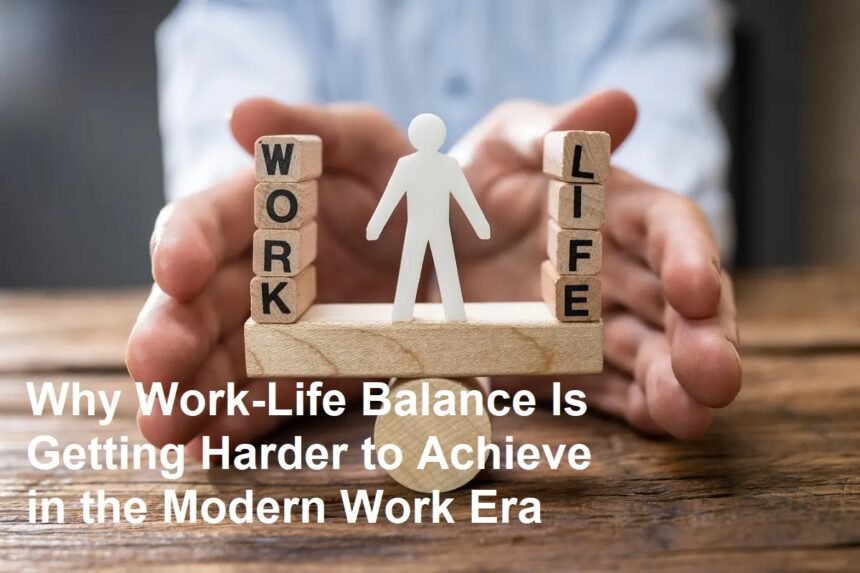Introduction
We often hear about the importance of work-life balance. But let’s be honest—maintaining it feels almost impossible in today’s modern work era. Between constant emails, remote work that blurs personal boundaries, and the pressure to always be “productive,” the line between work and life gets thinner every day.
So, why is work-life balance harder to achieve now than ever before? Let’s break it down with expert insights, health benefits you shouldn’t ignore, and practical tips to help you reclaim your balance.
Why Work-Life Balance Feels Out of Reach Today
Technology Keeps Us Always Connected
Gone are the days when work ended at 5 PM. With smartphones and remote working tools, we’re constantly reachable. While convenient, this makes it hard to truly disconnect from work.
The Rise of Hustle Culture
Modern work culture often glorifies long hours and constant productivity. The idea of “rest is lazy” pushes many people to overwork, leaving little room for personal life.
Flexible Work Isn’t Always Flexible
Remote and hybrid setups were supposed to make life easier. But for many, it just means working at all hours—answering messages during dinner or logging back in late at night.
Insights from Experts
Penjelasan dari para psikolog tentang Work Life Balance
Psychologists explain that the difficulty comes from blurred boundaries. According to workplace psychology research, humans need clear “switch-off” times to recharge mentally. Without them, stress hormones remain high, leading to burnout, anxiety, and even depression.
They also highlight that balance looks different for everyone. For some, balance means strict office hours. For others, it means flexibility to care for family or pursue hobbies. The real problem is when the system doesn’t allow for personal needs at all.
Why You Should Care About Balance
Apa manfaat Work Life Balance untuk kesehatan
Work-life balance isn’t just about having more time off—it’s about health and happiness. Research shows that people with good balance:
- Have better mental health – lower stress, less risk of burnout.
- Enjoy stronger physical health – reduced risk of heart problems and better sleep quality.
- Improve relationships – more time for family, friends, and meaningful connections.
- Boost productivity – when you’re rested, your focus and creativity naturally improve.
Practical Tips to Reclaim Your Balance
1. Set Clear Boundaries with Technology
Turn off notifications after work hours. Create “no laptop” zones at home, like the bedroom or dining table. This helps your brain separate work from rest.
2. Learn to Say No
You don’t have to accept every meeting or task. Prioritize what truly matters and politely decline what doesn’t fit your workload.
3. Schedule Personal Time Like Meetings
Block out time for exercise, hobbies, or family. Treat these appointments with the same respect as a work meeting—you wouldn’t cancel on your boss, so don’t cancel on yourself.
4. Redefine Productivity
Instead of measuring success by hours worked, focus on outcomes. This mindset shift helps reduce guilt when you log off at a reasonable time.
5. Talk to Your Employer
Many companies are starting to recognize the importance of mental health. If you feel overwhelmed, communicate with your manager about workload, flexible schedules, or wellness programs.
Final Thoughts
So, why is work-life balance harder to achieve in the modern work era? Technology, hustle culture, and blurred boundaries all play a role. But with conscious effort—setting boundaries, prioritizing health, and shifting your mindset—you can regain a sense of balance.
Work-life balance isn’t a luxury; it’s a necessity for long-term health and happiness.
How about you? Do you feel work-life balance is getting harder in your daily routine? Share your thoughts and experiences in the comments below—and don’t forget to pass this article along to someone who might need it!












